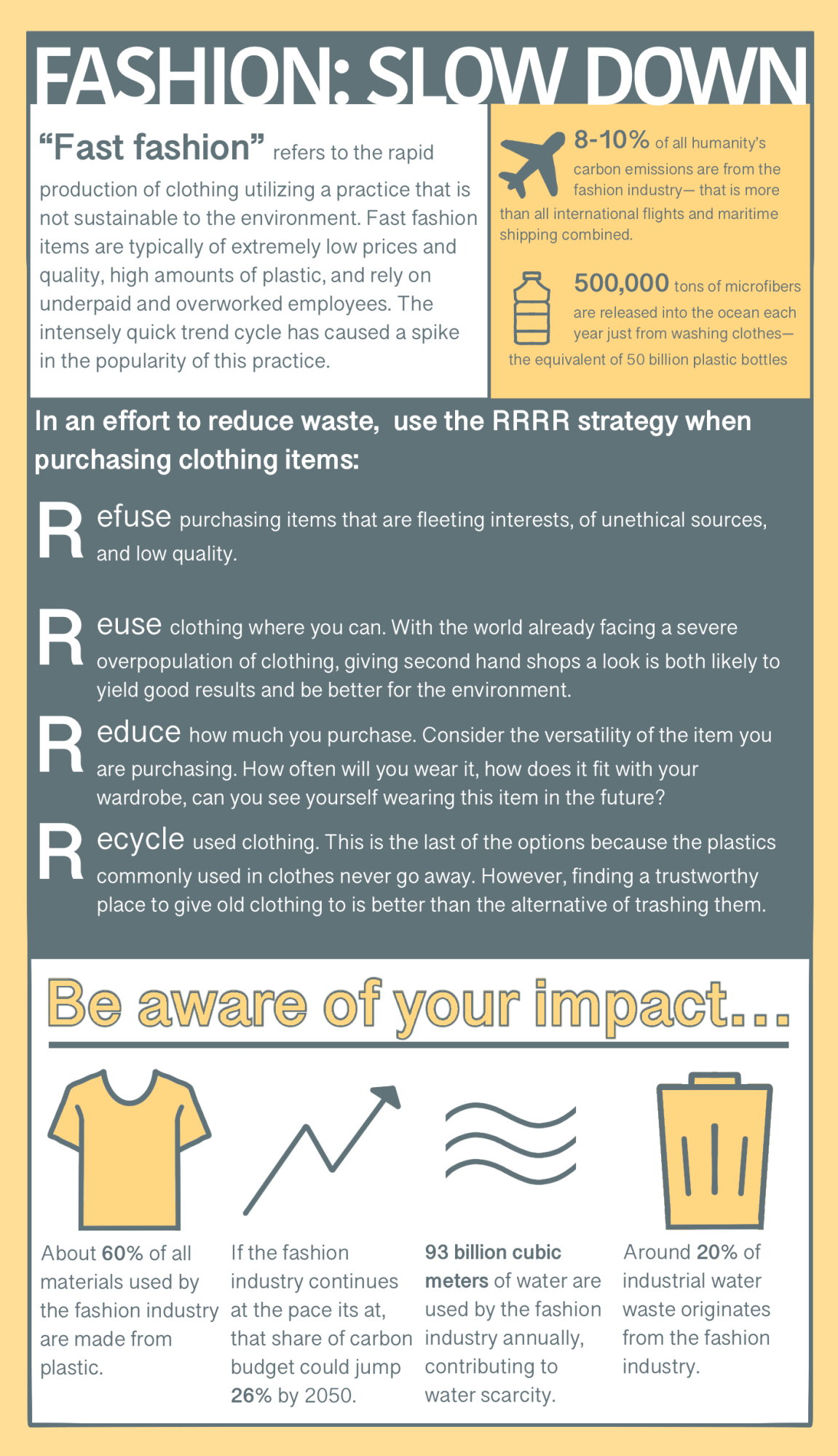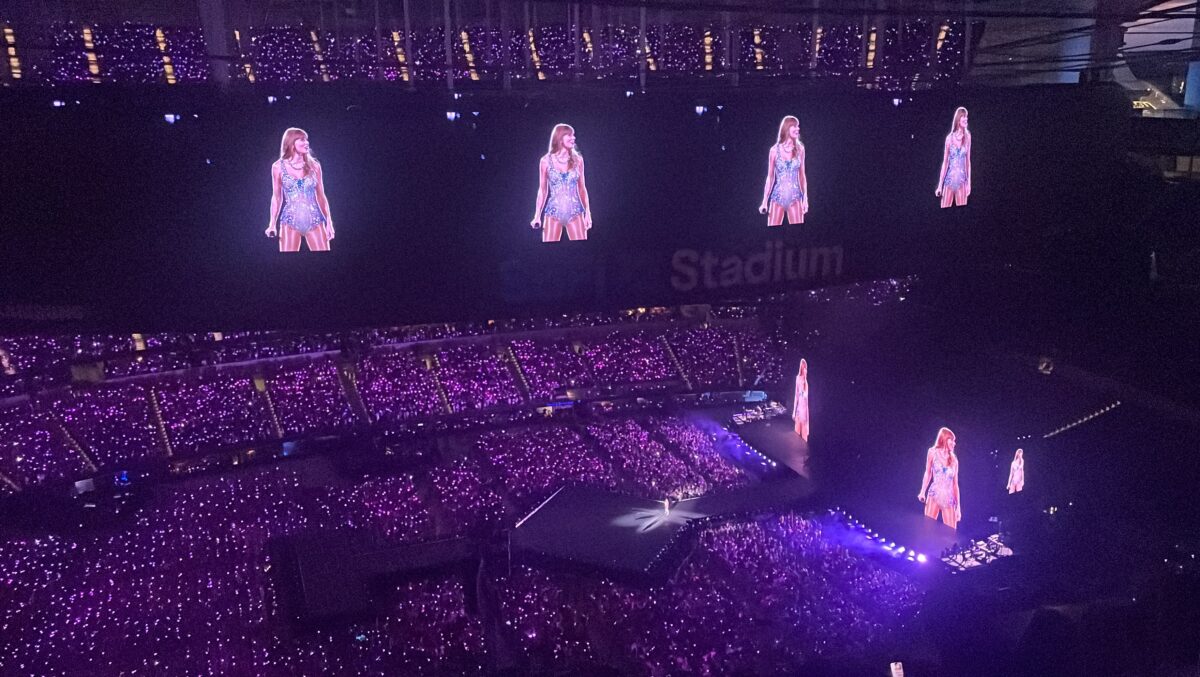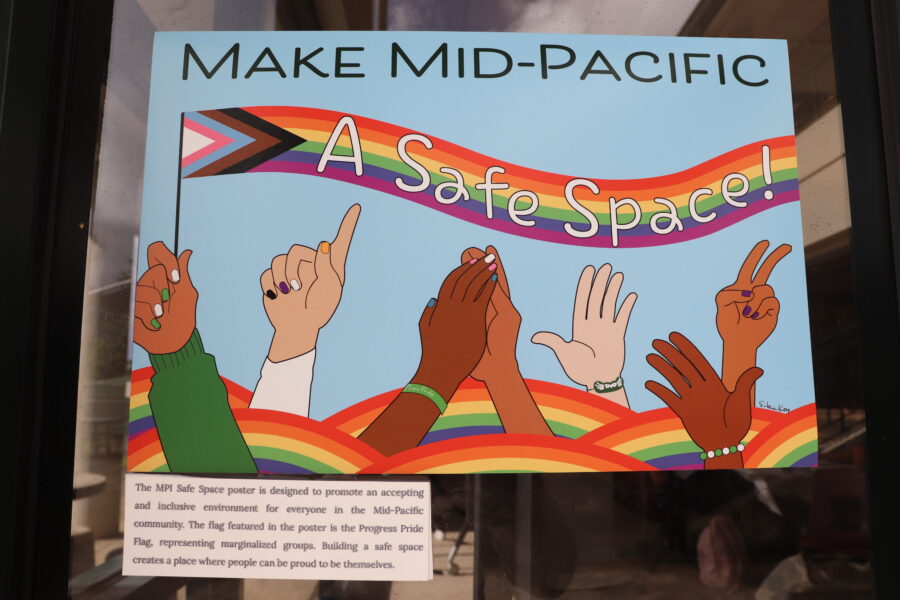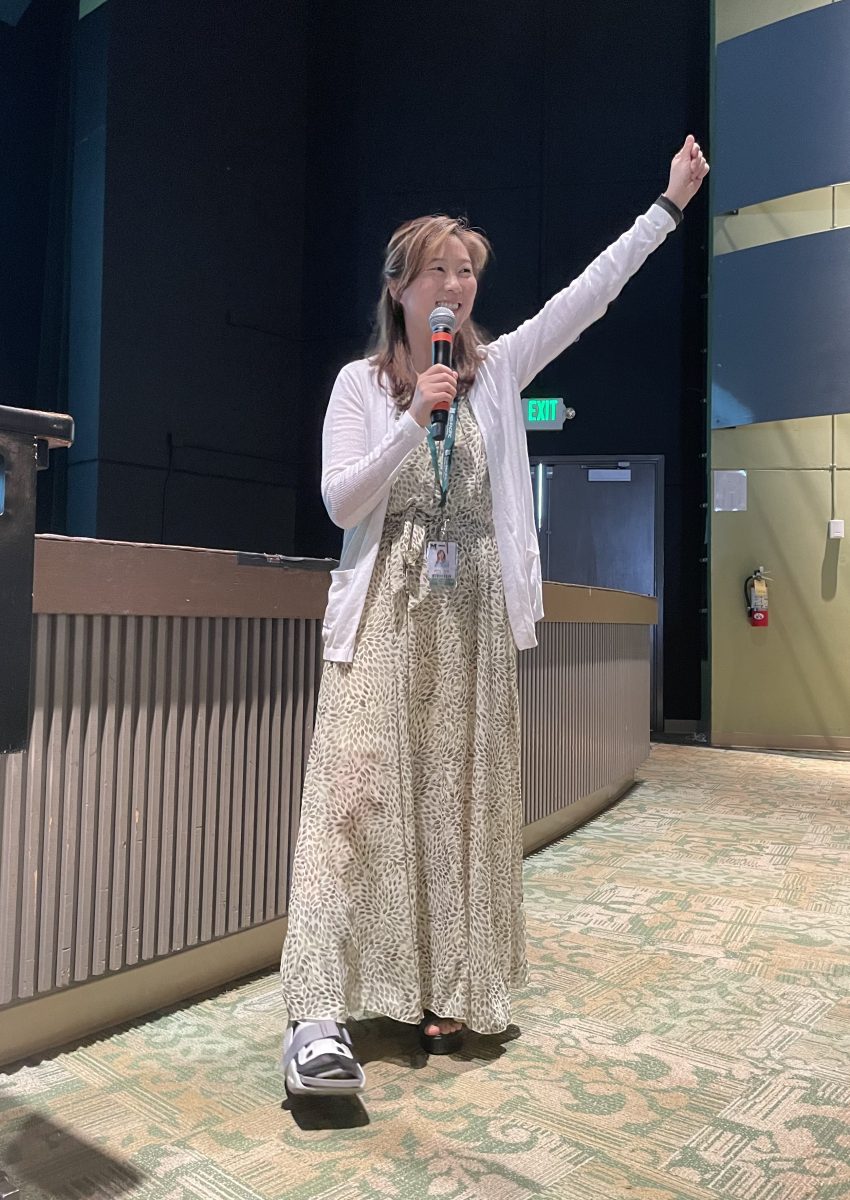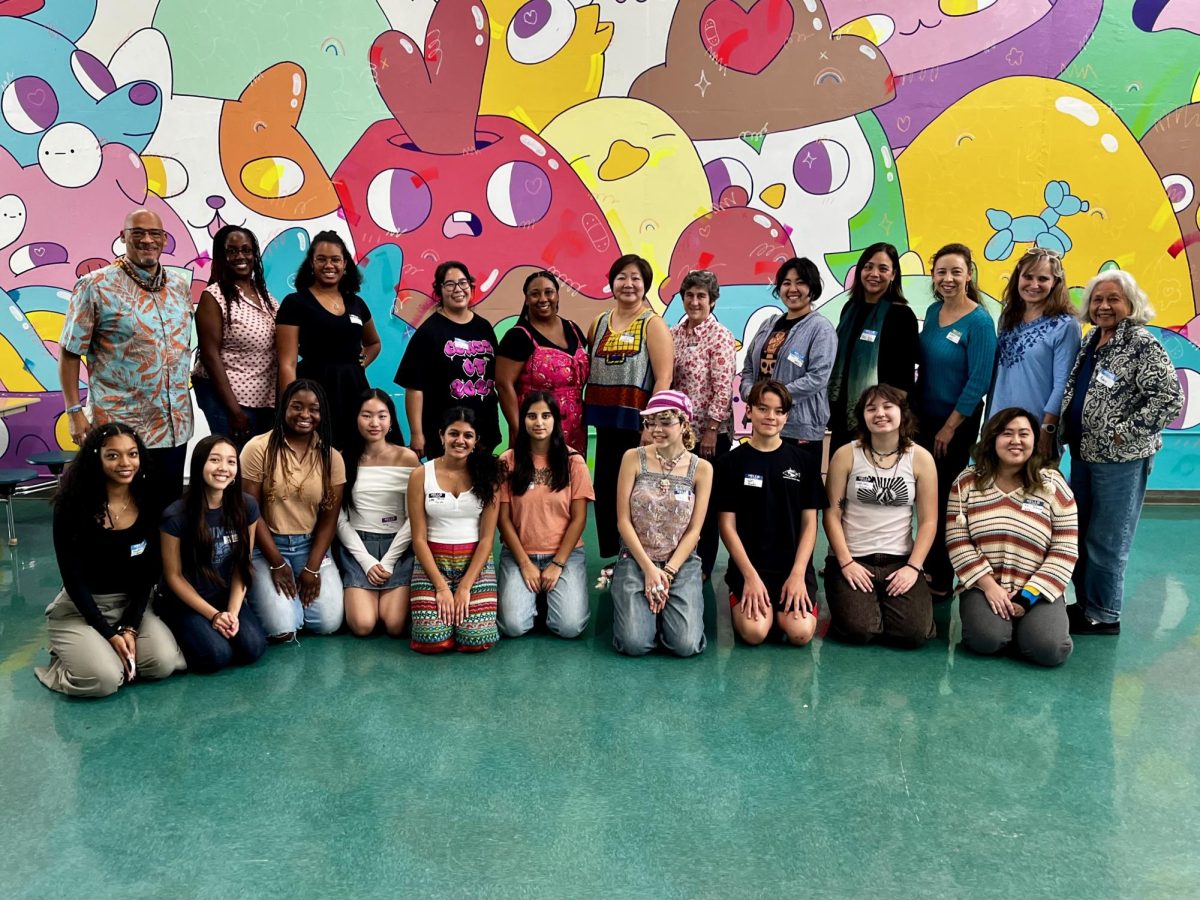Clothing has existed nearly as long as humans have, though its form has changed throughout the years to adapt to differences in culture, climate, and societal expectations. In the modern day, clothes and fashion are valued as key parts of one’s identity.
“For me, [fashion] is definitely a form of expression, and through experimenting with my style, I have found my confidence. Fashion isn’t as important to everyone, but for me, it shows my journey throughout [life],” Fashion Club Co-Leader Eva Rogers said.
Part of developing one’s own tastes, whether it be in design or clothing, is finding inspirations and guidance. Magazines were once the go-to media for fashion inspiration, but as the world dips further into the realm of the internet and social media, people find themselves relying more on virtual influencers.
From this, fast fashion has skyrocketed in popularity to become widely known across the world. Fast fashion is not a style, but instead a business practice with rapid production, done by taking advantage of underprivileged workers and producing tons of pollution and waste. This is tightly connected to the promotion of over-consumption in order to stay trendy and fit in, with this behavior commonly seen over various social platforms.
“[Fast fashion] is a true showing of materialism. A lot of people don’t know what it is and don’t know where it’s coming from. People want what’s available to them; the more available it is– and fast fashion is super available– the more it’s going to be used,” Environmental Science Teacher Sarah Vasconcellos said.
Fast fashion is especially appealing among those without a high income or job due to its inexpensive and plentiful nature.
“As a high school student, if your parents tell you to pay for your clothes yourself, you don’t want to go out and get hundred-dollar jeans if you can get thirty-dollar ones on Shein,” Rogers said.
However, these cheap prices are not without a downside. The impact of the fashion industry has on the environment is undeniable and unavoidable, and fast fashion companies are working to worsen this problem tenfold.
Another problem with fast fashion has a tremendous social impact, with the overworking and underpaying of their workers becoming a business model. It is only because of the exploitative treatment of employees that the prices for these companies’ items are so low.
According to the Geneva Environment Network, the fashion industry is not only responsible for producing 10% of all carbon emissions on the planet, but also the pollution and drying up of many bodies of water.
“If [the clothes] disintegrate, they make their way into the ocean, into our environments, or it makes its way into a huge pile somewhere that we think nobody is going to see. We can spot [these piles] in satellites,” Vasconcellos said. “What we really need is to slow down.”
To combat fast fashion, people have turned to sustainable fashion, also called ‘slow fashion’.
“There are alternative options for buying cheap clothing, like thrifting. That’s what I do to get most of my clothes,” senior Kate Bartholomees said.
Still, if mass amounts of secondhand clothing are being bought then quickly disposed of or thrown back into the system, the good in the previous choice has gone. This is why it is important to think about the usage of the item so that it is used to its fullest potential.
“I don’t usually buy new clothes that often, I use it until they’re either way too small or there’s holes in it. If it’s still in good condition, then I usually go to a Goodwill to give it away,” senior Junsei Tanizaki said.
However, the easiest and first step to take in realizing a consumer’s role in fighting for the health of our planet is to do their research on the companies they buy from.
“I’m trying to stop buying from Amazon because they contribute to fast fashion and I stopped buying from a few sites because they had to do with child labor,” sophomore Misha Chinn said.
Though in the face of massive corporate entities each person individually bears little weight, if all people can all come together and do our part, there may be a chance to turn this situation around and save our planet.
“Things like this are driven by culture, and we can change that culture; but it’s about who in the end wins out, and most of the time the environment loses out because of perceptions that it’s too expensive, even though it’s the only healthy thing out there,” Vasconcellos said.



